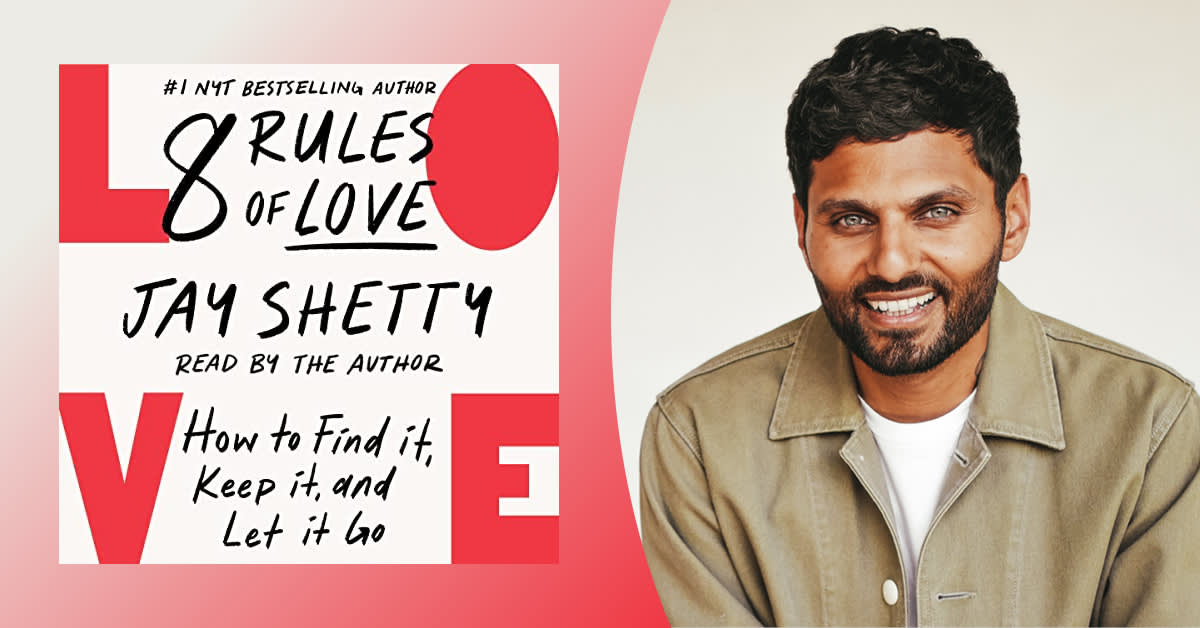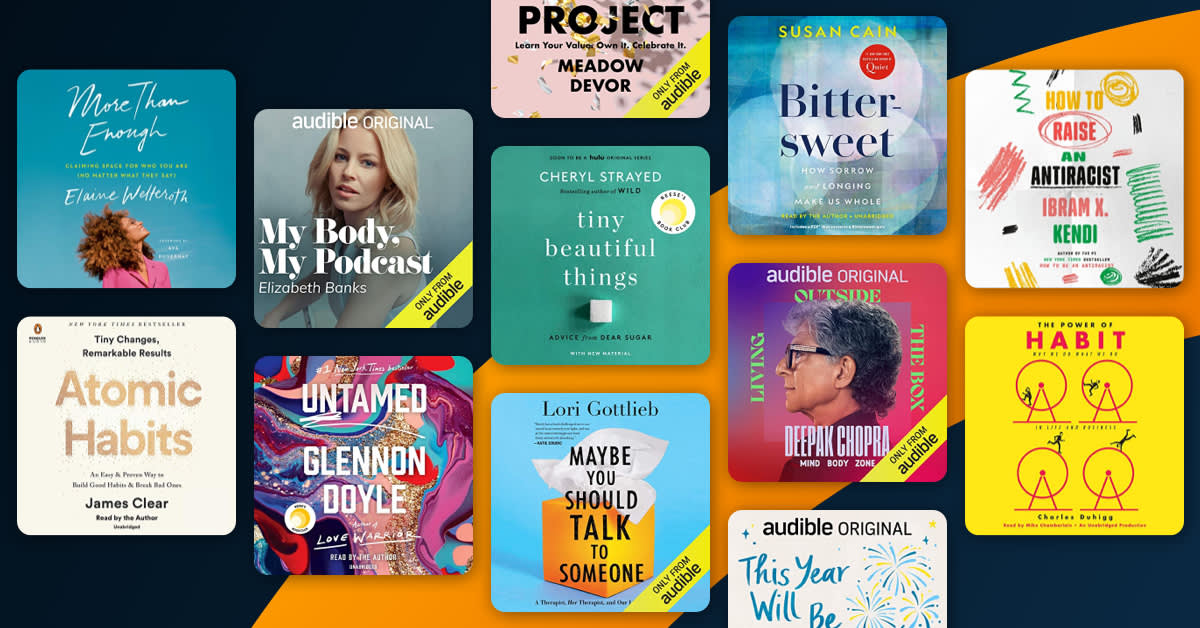Relationships are tough. Enter Jay Shetty, whose new audiobook proposes to do for relationships what his bestselling Think Like a Monk did for our individual mindset. In this Q&A, he shares the inspiration behind 8 Rules of Love, why we should take a step-by-step approach to the bewildering emotion, and how leading with intention can improve our relationships—and help us let go when we need to.
Audible: What inspired you to write 8 Rules of Love?
Jay Shetty: I have many reasons, but one of the main ones is that I think we often have this concept that when love is right, or you meet “the one,” that somehow things will just work out. Maybe there are a few bumps here and there but, by and large, love is enough. But if you think about it, you wouldn’t approach your career with that mindset. You wouldn’t assume that you’ll just stumble on the right job, and if it’s meant to be it will just go well from there. We’re far more intentional than that, so why wouldn’t we be just as intentional about something as important as love?
In this book I describe how we can be more thoughtful about love. It’s all about the habits and practices we want to cultivate and engage in if we want to create and sustain successful relationships.
In Think Like a Monk, you shared many of the lessons you learned while studying to become a monk in India, with the purpose of helping others build a less anxious and more meaningful life. How does 8 Rules of Love build on your earlier message?
In a way, I think 8 Rules of Love picks up where Think Like a Monk leaves off. I ended my first book talking about the value and importance of service, and how connection and engagement are really what life is all about. And 8 Rules of Love is a deeper dive into how we can nurture our connections with others. During my monk training, one of my teachers told us, "It’s hard enough to manage our own minds. Now imagine adding another one." In a way, Think Like a Monk is about managing your own mind, and 8 Rules of Love goes the next step to managing your mind and another one in a relationship.
Why should people take a step-by-step approach to something as abstract and seemingly incomprehensible as love?
It’s true that it’s difficult for science to wrap its arms around some aspects of love. But there’s been a ton of great research on everything from what’s happening in our brains when we fall in love or experience a breakup, to the most constructive methods of fighting. Plus, we have all of these social and emotional patterns that we tend to repeat, and those are things we can learn to identify and change when they’re not working for us. The Vedas also offer many insights into human behavior, and I include a lot of that wisdom in the book. So, we do often think of love as totally abstract, and some parts of it definitely are, but when it comes down to it, there really are a lot of reliable and predictable aspects of love and relationships that we can address in a concrete and intentional way.
What can listeners expect to feel when they listen to 8 Rules of Love?
Two things I hope listeners feel when they listen to 8 Rules of Love: that they are seen, and surprised. By seen, I hope that they see themselves in the stories and scenarios I’ve included. That, as they’re listening, there are parts where they’re nodding along because they recognize something they’ve experienced. And surprised, because I think there’s a lot of material in this book that I haven’t come across or talked about myself elsewhere, so I hope and believe that it will spark some insights in people that they’ve never encountered before.
And I’ll add a third feeling: supported. I believe listeners will feel supported, because that’s what this is all about—spreading love and helping love grow.







